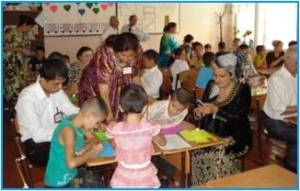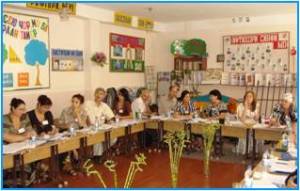 To prevent children and adolescents from using drugs, getting involved in crime and becoming vulnerable to HIV/AIDS, it is important to focus on families and family relationships.
To prevent children and adolescents from using drugs, getting involved in crime and becoming vulnerable to HIV/AIDS, it is important to focus on families and family relationships.
Research has shown that families can act both as a powerful risk and as a protective factor for healthy child and youth development. Family factors, together with peer influence, have a central position in all models attempting to explain the path that may lead children and young people to use drugs. A number of characteristics that increase the risk of children and youth to initiate drug use, delinquent or violent behaviour or engage in early or unprotected sex. These include relationships between children and parents characterized by indifference, non-responsiveness, emotional insecurity; poor management of children's behaviour and discipline; lack of opportunities to learn social skills; a chaotic home environment and lack of structure in family life. These factors further increase their risk of becoming infected with HIV/AIDS
In order to strengthen relationships between children and parents, as well as to support parents in taking better care of their children, UNODC has initiated a global project called: "Prevention of drug use, HIV/AIDS and crime among young people through family skills training programmes in low- and middle-income countries".
 This project provides evidence-based training in family skills. It strengthens and improves the capacity of families in regions where high level of drug use has been noted to take better care of children. Under the supervision of Ms. Lynn McDonald, Professor of Social Work Research at Middlesex University, Great Britain, training at two pilot schools (one in Dushanbe, Tajikistan and the other in Bishkek, Kyrgyzstan) was conducted for school teachers, school psychologists and parents on "Families and Schools Together (FAST)". In order to adapt the training manual to local cultural norms, language and traditions, a national cultural adaptation team was formed in each country.
This project provides evidence-based training in family skills. It strengthens and improves the capacity of families in regions where high level of drug use has been noted to take better care of children. Under the supervision of Ms. Lynn McDonald, Professor of Social Work Research at Middlesex University, Great Britain, training at two pilot schools (one in Dushanbe, Tajikistan and the other in Bishkek, Kyrgyzstan) was conducted for school teachers, school psychologists and parents on "Families and Schools Together (FAST)". In order to adapt the training manual to local cultural norms, language and traditions, a national cultural adaptation team was formed in each country.
 This consisted of representatives of the Ministry of Education, the Institute for Advanced Studies of Teachers, the Academy of Science and the Scientific Centre on medico-social problems of drug addiction. Trained specialists are now in the process of conducting 8 practical training sessions (one session per week) for 40 families with children of 7-8 years old in each country. These sessions consist of various games and competitions.
This consisted of representatives of the Ministry of Education, the Institute for Advanced Studies of Teachers, the Academy of Science and the Scientific Centre on medico-social problems of drug addiction. Trained specialists are now in the process of conducting 8 practical training sessions (one session per week) for 40 families with children of 7-8 years old in each country. These sessions consist of various games and competitions.
Teachers and parents evaluated the training and practical sessions as helpful in creating a positive family environment, decreasing child depression and aggression, decreasing family conflicts and improving relationships between children, family members and school.